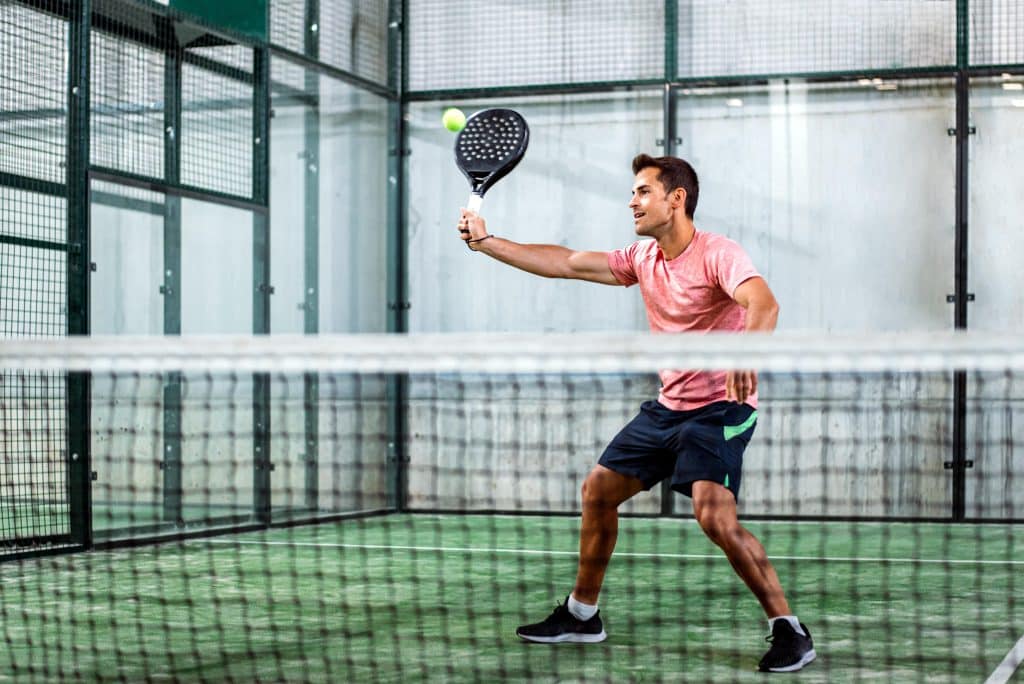
Introduction
Pickleball has surged in popularity in recent years, becoming a favorite pastime for people of all ages. This fast-paced sport, often dubbed as a blend of tennis, badminton, and ping-pong, offers a fantastic way to stay active and socialize. However, like any physical activity, pickleball injuries comes with its fair share of injury risks. As orthopedic surgeons, we understand the importance of both enjoying sports and staying injury-free. In this guide, we’ll delve into the world of pickleball, discussing common injuries and providing valuable tips to keep players safe on the court.
Understanding Pickleball and Its Physical Demands
Pickleball is a low-impact sport that’s easier on the joints compared to high-impact sports like basketball or running. Played on a smaller court, it’s well-suited for players of all ages and fitness levels. However, despite its moderate intensity, pickleball can still lead to injuries, particularly those related to overuse and improper technique.
Common Pickleball Injuries
- Shoulder Strain: One of the most prevalent injuries in pickleball is shoulder strain. The repetitive overhead swings, essential for serves and volleys, can strain the rotator cuff muscles. Players often develop issues like rotator cuff tendinitis or bursitis due to improper mechanics or lack of warm-up.
- Tennis Elbow (Lateral Epicondylitis): Similar to tennis, pickleball players are prone to developing tennis elbow due to the repetitive gripping and swinging motions. This condition involves inflammation of the tendons on the outside of the elbow and can cause pain and discomfort.
- Knee Injuries: Quick lateral movements are a fundamental part of pickleball, which can stress the knee joints. Knee injuries, such as sprains, strains, and even ligament tears, can result from sudden changes in direction or improper landing after jumps.
- Ankle Sprains: The frequent stops, starts, and direction changes in pickleball increase the risk of ankle sprains. Inadequate footwear or playing on uneven surfaces can exacerbate this risk.
- Back Pain: Poor posture during gameplay or inadequate core strength can lead to back pain. Players often hunch over during serves and volleys, straining the spine and back muscles.
Prevention Tips for a Safe and Enjoyable Game
- Warm-up and Stretch: Prior to stepping onto the court, spend at least 10-15 minutes warming up your muscles. Dynamic stretches, such as arm circles, leg swings, and trunk rotations, prepare your body for the game ahead.
- Proper Technique: Learning the correct techniques for serves, volleys, and other strokes is crucial to prevent injuries. Enlist the help of an experienced coach to guide you in maintaining proper form, especially when starting out.
- Strength and Conditioning: Incorporate strength training exercises into your routine to improve muscle balance and joint stability. Focusing on the shoulder, core, and lower body muscles can help prevent strain on vulnerable areas.
- Use Appropriate Gear: Invest in appropriate pickleball shoes that offer good traction and ankle support. Wearing moisture-wicking clothing can help regulate body temperature and prevent discomfort.
- Stay Hydrated: Proper hydration is essential for optimal muscle function and overall performance. Drink water before, during, and after your game to stay adequately hydrated.
- Listen to Your Body: Pay attention to any signs of pain or discomfort. Ignoring these signals can lead to more serious injuries. If you experience persistent pain, consult a medical professional promptly.
- Rest and Recovery: Give your body sufficient time to rest and recover between games or practice sessions. Overtraining can lead to overuse injuries, so strike a balance between activity and rest.
- Stretch After Playing: Engage in static stretching after playing to improve flexibility and reduce muscle soreness. Focus on the shoulders, wrists, hips, and hamstrings.
The Role of OrthoMiami Sports Medicine
When injuries occur, it’s vital to promptly seek appropriate medical attention. A specialist in sports medicine is well-versed in the unique requirements of sports and physical activities. They can provide expert care to injured athletes, including those who play pickleball. The approach of our OrthoMiami Medicine team to addressing common pickleball injuries is as follows:
- Precise Diagnosis: Our sports medicine experts with specialized training will conduct a thorough assessment. This evaluation may encompass physical examinations, imaging scans, and diagnostic tests to precisely identify the injury.
- Individualized Treatment Plans: Since each injury is distinctive, an OrthoMiami Medicine physician will formulate an individualized treatment strategy that aligns with the player’s specific condition, requirements, and objectives.
- Non-Invasive Treatment: In numerous instances, conservative treatment choices such as rest, physical therapy, bracing, and anti-inflammatory medications could be effective in fostering recovery and rehabilitation.
- Minimal Intervention Procedures: If needed, our sports medicine surgeons might carry out minimally invasive procedures, like corticosteroid injections or arthroscopic surgery, to address certain injuries.
- Rehabilitation and Physical Therapy: An integral aspect of the healing process involves rehabilitation and physical therapy. Our sports medicine Miami team will collaborate closely with an OrthoMiami physical therapist to develop a targeted rehabilitation program aimed at reinstating strength, flexibility, and functionality.
- Strategies for Injury Prevention: OrthoMiami Medicine physicians not only treat injuries but also offer valuable advice on strategies for preventing injuries. This encompasses appropriate warm-up routines, conditioning exercises, and enhancements in technique.
Conclusion
Pickleball offers a fantastic way to stay active and connect with others, but ensuring a safe and enjoyable experience requires proactive injury prevention strategies. By understanding common pickleball injuries and implementing the tips provided by orthopedic surgeons, players can significantly reduce their risk of injury and continue enjoying the game for years to come.
Remember, a combination of proper technique, adequate warm-up, appropriate gear, and attentive self-care will pave the way for a fulfilling pickleball journey that keeps your orthopedic health in check. OrthoMiami, a trusted name in orthopedic care and sports medicine, is dedicated to providing exceptional surgical expertise and compassionate patient care to pickleball players. Contact or call us at (305) 596-2828 today.